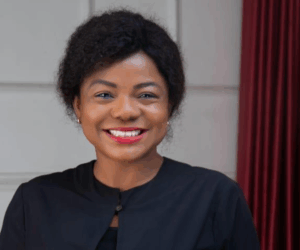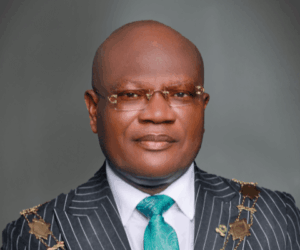L-R: Ayo Bankole-Akintujoye, Convener, Lagos SME Bootcamp; Edward Israel-Ayide, CEO, Carpe Diem Solutions; Suraj Oyewale, Founder, Jarus Homes; Joy Taiye Ijeneme, CEO, Zamar Solutions, and Adebayo Adegun, CEO, Crosstie Solutions, at the 8th edition of the Lagos SME Bootcamp.
Enterprise and marketing experts have said that the success of the SME market depends on the authenticity of the stories they tell, not their big budget.
Edward Israel-Ayide, Founder of Carpe Diem Solutions, who stated this, along with other experts, at the Caladium Lagos SME Bootcamp held in Lagos recently, noted that “every SME has authentic stories to tell; they’re just not looking for them.”
He told his audience at the event that “your customer transformations, founding moment, and team’s daily wins are your marketing assets. In a digital space full of noise, authenticity cuts through,” tasking the over 1,000 entrepreneurs to rethink their approach to brand differentiation in increasingly saturated markets.
The 8th edition of the annual event drew about 700 participants in person and hundreds more virtually, as small business owners sought strategies to compete without the marketing budgets available to larger corporations.
Israel-Ayide’s message resonated particularly with entrepreneurs struggling to stand out in crowded digital spaces where product features and pricing alone no longer guarantee market traction.
“People don’t remember your product specifications or pricing tiers. They remember how you made them feel. Show the human side of your business, and watch how trust turns strangers into customers,” he told participants during a panel discussion with Adebayo Adegun, Mobolaji Ajayi, and Suraj Oyewole.
The emphasis on authentic storytelling over expensive marketing campaigns reflects a broader shift in how SMEs approach customer acquisition in Nigeria’s cost-constrained business environment.
According to SMEDAN data, SMEs contribute 48 percent of Nigeria’s GDP and account for 84 percent of employment, yet most struggle with brand positioning and market visibility despite having compelling operational stories.
While brand communication dominated one session, experts used another to warn that many Nigerian entrepreneurs leave significant value unprotected by failing to register intellectual property.
Oyinkansola ‘Foza’ Fawehinmi, Lead Legal Consultant at Zaeda Oracle, argued that unregistered trademarks and proprietary processes represent a critical vulnerability for small businesses.
“Too many business owners create value but fail to secure their rights to it. Your brand name, your unique process, and your creative content are assets that can be monetised, but only if they are properly registered and protected. The cost of registration is minimal compared to the cost of losing your business identity to copycats or being unable to enforce your rights when someone infringes,” Fawehinmi said.
She was joined by Isah Yusuf Aruwa of Dangote Industries and business consultant Todimu Ige, who emphasised the importance of proper documentation and formal business structures as foundations for investor readiness and long-term sustainability.
The event’s founder spotlight featured Razaq Ahmed, Co-Founder and CEO of Cowrywise, who detailed the operational and strategic decisions behind building one of Nigeria’s leading digital investment platforms.
Ahmed discussed navigating regulatory complexity, achieving product-market fit in Nigeria’s challenging financial services landscape, and democratizing access to investment products traditionally available only to high-net-worth individuals.
His session provided frameworks for entrepreneurs building technology-enabled businesses in emerging markets where infrastructure gaps and regulatory uncertainty create both barriers and opportunities.
He emphasised data-driven decision-making, clear vision, and strategic mentorship as critical factors for scaling ventures from concept to market leadership.
The event also examined leadership requirements for uncertain economic conditions, with Godwin Tom of Sony Music Publishing Nigeria and Ashley Immanuel of Semicolon addressing how entrepreneurs can build businesses capable of adapting to Nigeria’s volatile market dynamics.
Ayo Bankole-Akintujoye, event convener, told BusinessDay that the bootcamp has evolved into a critical knowledge-sharing platform for entrepreneurs seeking institutional-quality business education typically available only to larger corporations.
“We started this eight years ago, believing that small businesses deserve access to the same quality of insights and networks that larger corporations enjoy. Today, we’re celebrating hundreds of businesses that have transformed their operations and built sustainable enterprises through the knowledge and connections gained here,” Akintujoye, who co-founded the initiative with Oluwaseun Durojaiye in 2018, said.
Beyond plenary sessions, the bootcamp included an exhibition marketplace featuring 75 businesses and a pitch competition that awarded grants to three entrepreneurs.
Since its inception, the Caladium SME Community has provided capacity-building support to over 10,000 small businesses across Nigeria, creating, organisers say, a critical resource for entrepreneurs lacking access to traditional business networks and strategic guidance.









